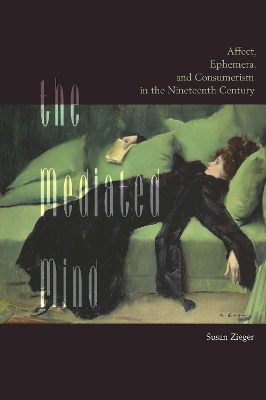
annieb123
Written on Jun 6, 2018
The Mediated Mind is an academic treatise on the interrelationships between media and society and how it affects and drives consumerism. The book specifically deals with the impact of printed media and ephemera - cheap printed media such as magazines, cigarette cards, etc - from the 19th century onward and postulates a direct link between the early mass-print market and today.
Two details going into the review. My grandfather was a Polish Jew who came to the USA without prior working knowledge of English. He learnt English by reading comic books, and inculcated the same love of comic books in my father. I am, thus, a third generation comic book and general ephemera nerd. I am also a keen fan of sociology and the impact of media. I am especially interested in how control and spin in the media relates to resistance (or passivity) in our society.
I remember asking my grandfather over and over (and over) how the holocaust could possibly have happened. His answer was that nobody knew what was going on, and that demanding to know was very dangerous. The control of information was critical to controlling the population. Anyhow, the point is that this book examines the direct line between printed media and society and extrapolates to our current day daily media overload and how it affects our own collective psyche.
This book was emphatically not an easy read. The author's expository prose is very academic and the text is written formally with exhaustive citations and cross references. The author follows a fairly rigid formula. In the introduction, tell the reader what you're going to tell them, use the body of the exposition to tell them in more detail, and in the conclusion, tell them what you told them.
The introduction takes up roughly 10% of the page content and discusses what is covered in the book. The body of the book (~80%) deals with temperance ephemera and tracts, tobacco and cigarette cards - and the driving of 'addiction' to collecting and acquisition, our subconscious (Rorschach blots among other things), along with mass culture.
The final chapter draws interesting comparisons between the 19th century everyman and our modern (western) everyman; still largely ignorant, crass, willfully uneducated, politically repugnant and/or naive.
The conclusion is followed by a whopper of a footnote/reference section with citations.
I've mentioned a couple of times that this book is a very dry academic read. I read every word and I'm still not 100% convinced it's not an elaborate joke on the pretentiousness of academia. I found it worthwhile, but I would definitely recommend it only readers who are especially interested.
Five stars, but only for readers who are especially invested in the material. (Extra points for being an original treatise on a subject which doesn't have a lot of academic representation).
Stats: 256 pages, e-Textbook, Hardback, softbound
Author: Susan Zieger, PhD
Publisher: Fordham University Press
Available: 5th June, 2018
Disclosure: I received an ARC at no cost from the author/publisher for review purposes.
